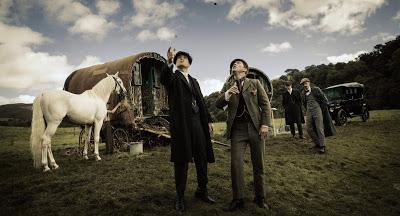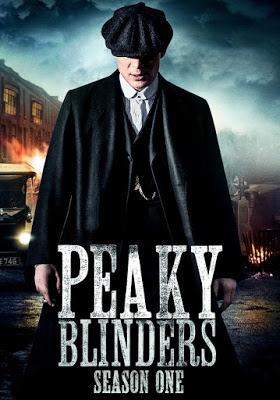
After years of watching very little television (when I was writing under contract with deadlines looming,) I have become addicted to a quiet hour or so after supper, stretched out on the sofa and watching an episode of a show. Midsomer Murders proved so comforting and enjoyable (and went on so long) that I was hooked.
Next we went through Miss Fisher's Mysteries -- a delightful bit of froth and eye candy.
When that was over, we tried Father Brown. I liked the main character but the predictable moralizing at the end and the scenery-chewing on the part of some of the other actors caused us to quit the good father after three episodes. (Plus it was set in the Fifties -- I was there for the Fifties and don't have a lot of nostalgia for the period.) Maybe, I thought, I was ready for something more serious -- no froth and predictability. Maybe I was ready for Peaky Blinders -- the gritty drama set in Birmingham (UK) in the Twenties.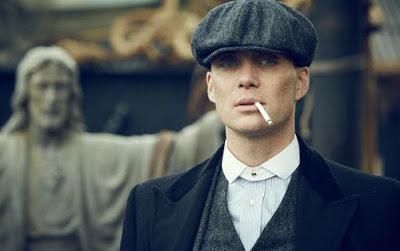
Oh, boy! This series is a winner! (I say this having only watched the first season so no spoilers in the comments, please!) Great music, amazing cinematography, stellar acting. Tom Shelby, the main character, is the de facto boss of the crime family that controls the Peaky Blinders gang. He's complex and, to me at least, very likeable. He suffers from terrible dreams, a result of his experiences in the trenches in WWI and his blank blue stare is completely chilling. Like Michael in The Godfather, he has plans to take the family business (bookmaking) legal.
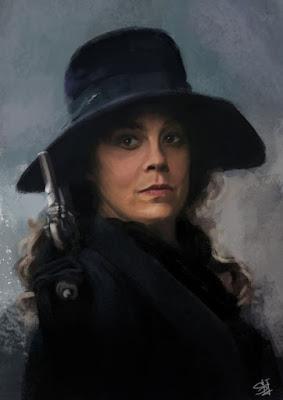 Two very strong female characters enhance the story line. Aunt Pol, Tom's dead mother's sister, who ran the family business while the Shelby men were fighting for King and Country, and Grace, an undercover agent posing as a barmaid in a Shelby owned pub while working with the authorities to bring down the Shelbys.
Two very strong female characters enhance the story line. Aunt Pol, Tom's dead mother's sister, who ran the family business while the Shelby men were fighting for King and Country, and Grace, an undercover agent posing as a barmaid in a Shelby owned pub while working with the authorities to bring down the Shelbys.
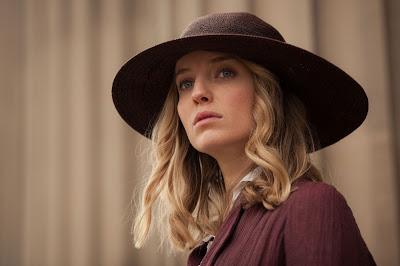
I find myself worrying about what is going to happen to these folks -- something that never happened with my comfort viewing because there it was a sure thing that Right would triumph in the end. Here, I can already envision tragic turns ahead.
And that's, I think, the difference between froth and drama. In drama we invest our emotions, allow ourselves the uncertainty. Aristotle said that the aim of tragedy is to give the spectator a better understanding of the ways of gods and men and to bring about a catharsis -- to arouse feelings of fear and pity which are purged by witnessing some dire and compelling change in the fortunes of the protagonist. (And, my goodness, the scene is set for that as Tom and Grace are falling in love.)
Plus there are Gypsies -- Romani speakers with caravans. I'm a sucker for Gypsies.
